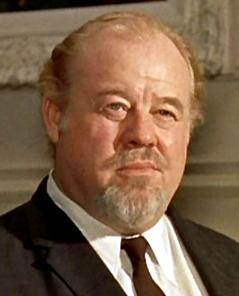A Quote by Alan Lightman
Human beings consider themselves satisfied only compared to some other condition. A man who has owned nothing but a bicycle all of his life feels suddenly wealthy the moment he buys an automobile...But this happy sensation wears off. After a while the car becomes just another thing that he owns. Moreover, when his neighbor next door buys two cars, in an instant our man feels wretchedly poor and deprived.
Quote Topics
After
Another
Automobile
Becomes
Beings
Bicycle
Car
Compared
Condition
Consider
Deprived
Door
Feels
Happy
His
Human
Human Being
Human Beings
Instant
Just
Life
Man
Moment
Moreover
Neighbor
Next
Next Door
Nothing
Off
Only
Other
Our
Owned
Owns
Poor
Satisfied
Sensation
Some
Suddenly
Themselves
Thing
Two
Wealthy
Wears
While
Related Quotes
What, then, is that incalculable feeling that deprives the mind of the sleep necessary to life? A world that can be explained even with bad reasons is a familiar world. But, on the other hand, in a universe suddenly divested of illusions and lights, man feels an alien, a stranger. His exile is without remedy since he is deprived of the memory of a lost home or the hope of a promised land. This divorce between man and his life, the actor and his setting, is properly the feeling of absurdity.
When every one is to cultivate himself into man, condemning a man to machine-like labor amounts to the same thing as slavery. If a factory-worker must tire himself to death twelve hours and more, he is cut off from becoming man. Every labor is to have the intent that the man be satisfied.... His labor is nothing taken by itself, has no object in itself, is nothing complete in itself; he labors only into another's hands, and is used (exploited) by this other.
Solitude is the profoundest fact of the human condition. Man is the only being who knows he is alone, and the only one who seeks out another. His nature - if that word can be used in reference to man, who has ‘invented’ himself by saying ‘no’ to nature - consists in his longing to realize himself in another. Man is nostalgia and a search for communion. Therefore, when he is aware of himself he is aware of his lack of another, that is, of his solitude.
There was a four year old child whose next door neighbor was an elderly gentleman who had recently lost his wife.
Upon seeing the man cry, the little boy went into the old gentleman's yard, climbed onto his lap, and just sat there.
When his Mother asked what he had said to the neighbor, the little boy said,
“Nothing, I just helped him cry.²”
“Even after all this time
the sun never says to the earth
“You owe me”
Look what happens with a love like that,
It lights the whole sky..”
Consider a man riding a bicycle. Whoever he is, we can say three things about him. We know he got on the bicycle and started to move. We know that at some point he will stop and get off. Most important of all, we know that if at any point between the beginning and the end of his journey he stops moving and does not get off the bicycle he will fall off it. That is a metaphor for the journey through life of any living thing, and I think of any society of living things.
A writer always wears glasses and never combs his hair. Half the time he feels angry about everything and the other half depressed. He spends most of his life in bars, arguing with other dishevelled, bespectacled writers. He says very 'deep' things. He always has amazing ideas for the plot of his next novel, and hates the one he has just published.
To ride a bicycle is in itself some protection against superstitious fears, since the bicycle is the product of pure reason applied to motion. Geometry at the service of man! Give me two spheres and a straight line and I will show you how far I can take them. Voltaire himself might have invented the bicycle, since it contributes so much to man’s welfare and nothing at all to his bane. Beneficial to the health, it emits no harmful fumes and permits only the most decorous speeds. How can a bicycle ever be an implement of harm?




































